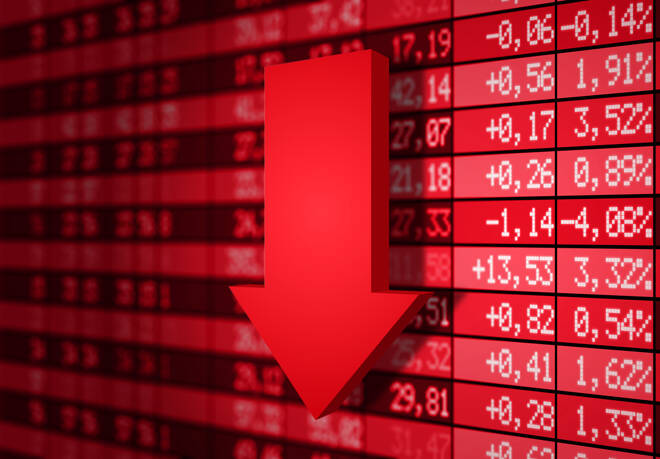Advertisement
Advertisement
European Equities: More Pain to Come as the Coronavirus Continues to Grip the Markets
By:
The European majors are set for another tumble at the open. It's time for EU member states to open the coffers...
The Majors
It was back into the red for the European majors on Thursday, with the CAC40 sliding by 1.90% to lead the way down. The DAX30 and EuroStoxx600 weren’t far behind with losses of 1.51% and 1.43% respectively.
Even the news of a $50bn aid package from the IMF aid package from Wednesday was not enough to support the majors.
A continued spread of the coronavirus across the globe weighed on risk sentiment, with the economic damage from the virus yet quantifiable.
While the likes of the FED still have some room to move, other central banks have little wiggle room, which should be of concern.
The Stats
It was a particularly quiet day on the Eurozone economic calendar on Thursday. There were no material stats to provide the European majors with direction.
From the U.S,
The numbers were skewed to the negative, with factory orders falling by 0.5% in January and initial jobless claims rising by 216k.
From the 4th quarter, unit labor cost and nonfarm productivity numbers were also softer, which weighed on the Dollar.
While there was some influence from the weaker numbers, it’s February and March data that will give a better sense of the near-term impact of the virus.
The Market Movers
For the DAX: it was a particularly bearish day for the auto sector. Continental was the worst performer of the 30, tumbling by 15.39%. Things were not much better for Daimler and Volkswagen, which slid by 6.41% and by 4.86% respectively. BMW was amongst the best performers on the DAX30, however, falling by just 3.28%…
Rate cuts by the RBA, FED, and the BoC, and the prospect of the ECB following suit, weighed on the banks.
Commerzbank fell by 4.18%, with Deutsche Bank sliding by 6.76%.
Deutsche Lufthansa also took a big hit on Thursday, falling by 7.65%, as travel restrictions and quarantines hit.
From the CAC, it was a particularly bearish day for the banks. BNP Paribas slid by 4.11%, with Credit Agricole and Soc Gen seeing heavier losses of 4.59% and by 5.77% respectively.
Things were not much better for the auto sector. While Peugeot fell by just 2.43%, Renault slumped by 7.56%.
Air France-KLM was amongst the worst performers, tumbling by 11.25%.
On the VIX Index
The VIX was on the move once more, surging by 23.85% as risk aversion hit the global financial markets. Reversing a 13.12% slide from Wednesday, the VIX ended the day at 39.6.
It’s been particularly choppy across the global financial markets and on Thursday, the S&P500 slid by 3.39% as coronavirus jitters returned.
Travel restrictions widened and quarantines were extended as the number of cases and coronavirus deaths in the U.S rose.
Economic data out of the U.S failed to support. Factory orders fell in January, with more declines expected through the quarter…
The Day Ahead
It’s a relatively quiet day ahead on the Eurozone economic calendar. German factory orders for January are in focus.
While forecasts are positive, with orders forecasted to rise by 1.4%, these are January numbers that will not reflect the impact of the coronavirus. Therefore, expect any upside in response to the numbers to be limited going into the European open.
From the U.S, nonfarm payroll and wage growth figures will garner plenty of interest, however, though we don’t expect the influence to be as material as normal.
Outside of the numbers, coronavirus news updates and commentary from central banks and governments will also influence.
In the futures markets, at the time of writing, the DAX was down by 219.5 points, with the Dow down by 173 points.
About the Author
Bob Masonauthor
With over 28 years of experience in the financial industry, Bob has worked with various global rating agencies and multinational banks. Currently he is covering currencies, commodities, alternative asset classes and global equities, focusing mostly on European and Asian markets.
Advertisement
